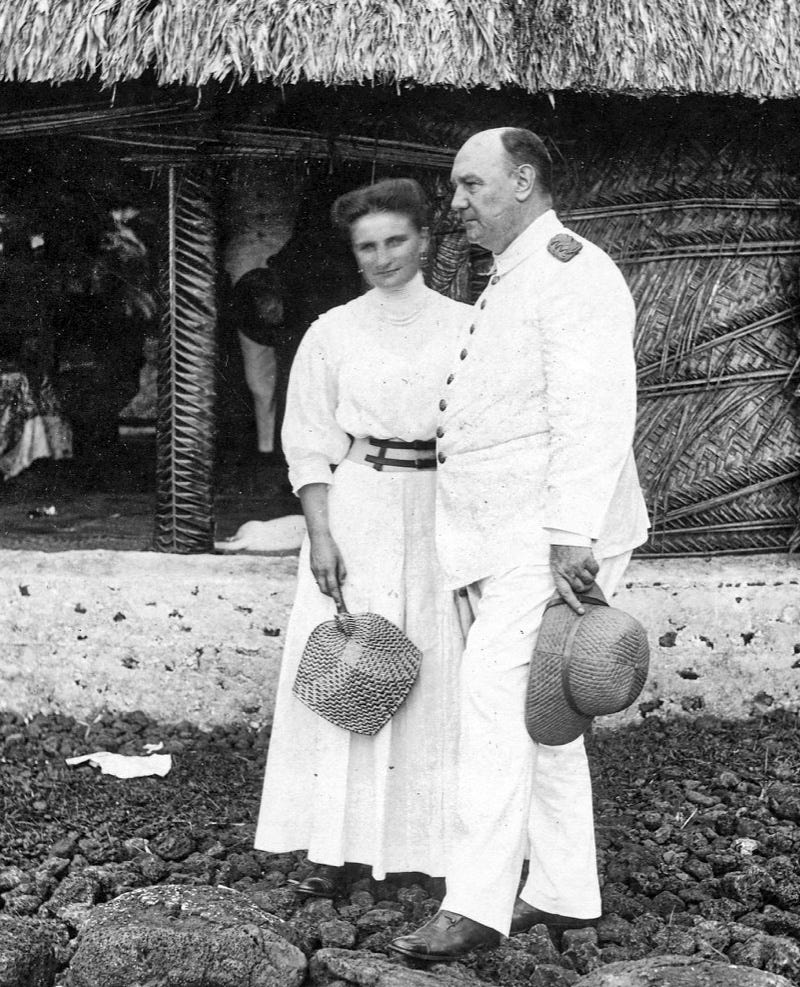Solf was 46 when he returned to Berlin to court a woman 25 years his junior. Johanna Elisabeth Susanne Dotti was intellectually sharp, pensive and attractive. Born in Neuenhagen, near Berlin, she was descended from an Italian family that had arrived in the city around 1800 to start a patent leather factory. Making uniforms for the Franco-Prussian War made them rich. Johanna’s father was a successful landowner, serving in local government politics and was chief of police. He owned one of Germany’s first automobiles, using it to roam the country with his daughters. Solf and Dotti married in 1908 in Germany, before returning to Sāmoa. In December 1908, they went to Savai’i to deal with a dispute with Lauaki which ended in his deportation four months later. Fagamālo, with its long white sand beach and vivid blue lagoons on an isolated island, could melt the most austere of Prussians. The couple were on Savai’i for 10 days.
It is likely Johanna conceived her first child there. A man called Faletoese, working at the government school at Malifa, wrote to Solf to say that prayers were being offered throughout Samoa for a painless birth for the Faletua Sili (wife of high chief); ‘May it please Your Excellency: Is it expedient for you to call me on the day of the Lady’s confinement? I intend to offer a prayer of thanks in response to the power of the Almighty.’
On 31 August 1909, Funk went to Vailima; ‘in obstetric cases, especially,’ a local commented, ‘he is the man’. Johanna, 22, gave birth to Maria-Elisabeth Augusta Margaretha So'oa'emalelagi Solf. So’oa’emalelagi was a taupou name associated with the A’ana district. As an adult, she always used her Sāmoan name; ‘gift from heaven,’ or simply Lagi. The Gestapo would call her that.
Keep reading with a 7-day free trial
Subscribe to Michael Field's South Pacific Tides to keep reading this post and get 7 days of free access to the full post archives.





